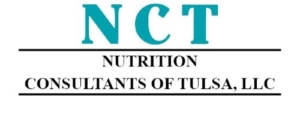Immune Health Fundamentals
The delicate balance of the immune system can be interfered with and challenged by many factors. These include neglect, abuse, and overuse. Individuals who are impacted by COVID-19 are largely, not solely, those people that have diet and/or lifestyle related diseases such as obesity, diabetes, and heart and lung disease. These disorders leave people in suboptimal health as a precursor for infection. No optimal level of vitamins as a “May Day” effort can protect the immune system as well as healthy lifestyles can.
How can you start boosting your immune system today?
Take a good quality multivitamin and a research grade probiotic. (Continue reading for more detail).
Without valuing nutrition vs big pharma, the mountain will remain steep.
The health as well as the function of the immune system can be upregulated by many factors. Immune function can be maximized and balanced through the following:
- Nutrition-whole food, lots of whole grains, fruits and vegetables. Focusing on lean animal or vegetable proteins. Few processed foods.
- Reducing stress-emotional and spiritual wellbeing. This is different for each individual.
- Moderate exercise (150-200 minutes/week of continuous moderate movement)
- Decreased sugar intake (20gm or less/week for women and 25gm or less for men). Read food labels for added sugar.
- Sugar negatively alters the function of our white blood cells for hours after ingestion.
- Immune-specific nutrients and supplements. See list below.
The term “immune support” on the label of a nutritional therapy may be over-used in the natural product industry, due to an overabundance of caution caused by over-regulation by the FDA and other authorities. It has become very difficult to give consumers true information about the help and support that may be afforded by natural therapies. This caution has influenced natural product companies to over-rely on the term “immune support” to attempt to convey why a consumer might want to use a specific supplement.
The very best way to approach supplement usage is to analyze a person’s white blood cells (lymphocytes) versus red blood cells to identify what nutrients are needed by that individual. It’s not a “one size fits all” approach when it comes to cutting edge nutrition therapy. We do this testing at our clinic, Nutrition Consultants of Tulsa.
A list of our body’s immune support players includes:
- Microbiome-biologically interactive microbes (good bugs) lining all mucosal barriers-intimately involved in the immune response
- Gastrointestinal lining-most active immune area in the body, site of significant IgG production (a healthy antibody)
- Lung barrier mucosal lining-key player in immune response
- Thymus, Tonsils/adenoids, Spleen, Lymphatic system, Bone marrow and Suppressor T-cells-all have major roles in immune function.
Probiotics
The understanding of the microbiome is expanding exponentially. The major mechanism of probiotic action is the regulation of our immune response protecting against diseases that enter the body through the mouth and nose, such as COVID-19.
There are a variety of probiotic species on the market today, which can help to balance the microbiome when taken as a dietary supplement. The strength of the probiotic in yogurt is not great enough to endure the “trip” from the mouth to the intestinal tract, so don’t count on yogurt as an adequate probiotic. Multi-species, research grade probiotics from reputable companies supply a probiotic that is sustainable. We recommend and sell Microbiome Labs and Numedica research grade Probiotics in our clinic.
Vitamin C
Vitamin C, or ascorbic acid, is a water soluble vitamin and supplies support to the immune system. The body cannot make vitamin C so it must come from foods/supplements. Low levels of vitamin C can increase susceptibility to respiratory infections, like COVID-19. Getting vitamin C from fruits and vegetables is ideal due to the increased absorption from the flavonoids present in these foods. Taking 500mgs twice daily as a supplement may reduce the severity and duration of a virus. More is NOT always better.
Zinc
Zinc is a mineral that can be supplied by the diet and is intimately linked to immune support. Zinc binds to certain cells that upregulate the body’s ability to fight inflammation. It has been found to be deficient in many diets, especially the elderly. Any form of zinc is well absorbed except for zinc oxide. Zinc lozenges can have some activity in the upper airway, where COVID-19 starts, but they will not directly help with lower respiratory illness (i.e. lungs), which is the greatest concern in COVID-19. Dissolved zinc leaves the respiratory system after the throat, moving to the gastrointestinal system, not the lungs. During the COVID-19 outbreak it is recommended to take 20-30mg/day, but only short term. Avoid taking this high dose for longer than 2-3 months due to induced copper deficiency and an actual adverse effect on the immune system.
These doses are to help boost the immune system, not meant to treat COVID-19. These doses are not appropriate for children or pregnant women.
Nutrition Consultants of Tulsa, LLC
A private practice of Registered Dietitians
Connie Davis Bendel, RD/LD
Cece Davis Gifford, RD, LD, CLT
Stephanie Harris, MS, RD, LD
